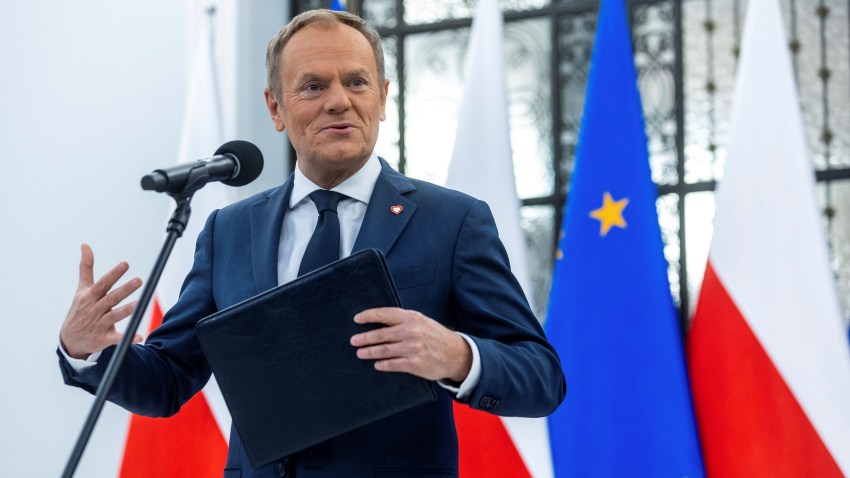On Nov. 27, Polish President Andrzej Duda reappointed Mateusz Morawiecki as prime minister, after Morawiecki’s Law and Justice, or PiS, party won the most votes in Poland’s mid-October elections. However, Morawiecki’s so-called zombie government is highly unlikely to win a vote of confidence, as the opposition Civic Coalition—which finished second—and its allies in parliament emerged from the ballot with a solid majority. As a result, former Prime Minister Donald Tusk will likely return for another stint in office in mid-December, when Morawiecki’s mandate comes to an end.
From day one the pressure will be on, and the task ahead for Tusk and his coalition partners will be immense. The new government will not only have to rescue the country’s democracy from the brink following eight years of PiS’ illiberal rule. It will also need to get a handle on inflation, which hovers at around 6.6 percent, ensure economic growth and reassure allies around the world that Warsaw’s return to democratic values will be long-lasting.
The list won’t end there, however. Among other pressing issues will be Poland’s energy transition. The outgoing PiS government, which was politically beholden to coal miners’ unions, often used the European Union’s climate laws as a foil to drum up popular support for the party’s hostility toward the bloc. All the while, it pushed for exceptions in the EU’s energy transition targets for Poland’s coal-fired power plants and generally adopted an obstructionist approach to the climate crisis. “Over the last eight years Poland made almost no progress in phasing out coal,” said Michal Hetmanski, the co-founder of Instrat, a Polish think tank.

